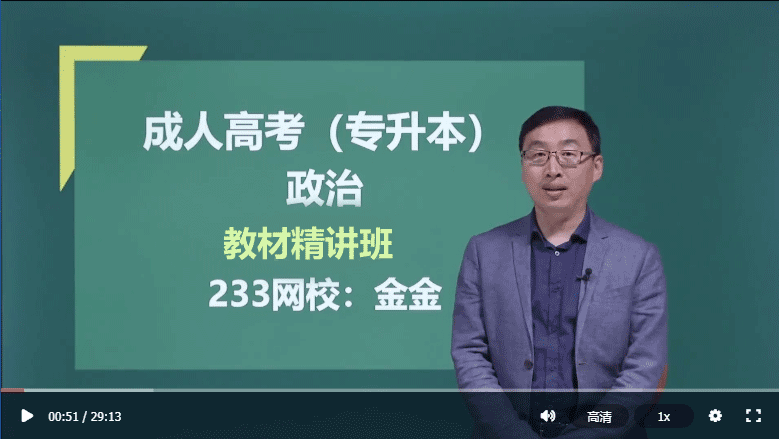жҲҗдәәй«ҳиҖғиӢұиҜӯеҗҢд№үиҜҚи§ЈжһҗпјҲдёүпјү
гҖҖгҖҖconversation chat dialogue discussion talk
гҖҖгҖҖйғҪеҗ«вҖңдәӨи°ҲвҖқзҡ„ж„ҸжҖқгҖӮ
гҖҖгҖҖconversation жҢҮвҖңж— жӢҳжқҹжҲ–йқһжӯЈејҸзҡ„и°ҲиҜқвҖқпјҢ еҰӮпјҡWe had a long telephone conversation.жҲ‘们йҖҡиҝҮз”өиҜқдҪңдәҶй•ҝж—¶й—ҙзҡ„дәӨи°ҲгҖӮ chat жҢҮвҖңй—Іи°ҲвҖқгҖҒвҖңиҒҠеӨ©вҖқпјҢ еҰӮпјҡWe need less chat and more work if we're to finish this job today. еҰӮжһңжҲ‘们жү“з®—д»ҠеӨ©е®ҢжҲҗиҝҷ件е·ҘдҪңзҡ„иҜқпјҢ йӮЈе°ұиҰҒе°‘иҒҠеӨ©гҖҒеӨҡе·ҘдҪңгҖӮdialogue жҢҮвҖңеҸҢж–№еҜ№иҜқжҲ–жҲҸеү§зҡ„еҜ№зҷҪвҖқпјҢ еҰӮпјҡThe dialogue remained light and friendly. и°ҲиҜқдёҖзӣҙдҝқжҢҒиҪ»жқҫж„үеҝ«е’ҢеҸӢеҘҪзҡ„ж°”ж°ӣгҖӮdiscussion жҢҮвҖңи®Ёи®әвҖқгҖҒвҖңе•Ҷи®®вҖқпјҢ еҰӮпјҡI had a long discussion with my friends about the matter. иҝҷ件дәӢжҲ‘и·ҹжңӢеҸӢ们е•Ҷи®ЁдәҶеҫҲд№…гҖӮtalk жҢҮвҖңйқһжӯЈејҸзҡ„и®ІиҜқвҖқпјҢ з”ЁдәҺиҫғйҡҸдҫҝзҡ„еңәеҗҲпјҢ еҰӮпјҡI met Mrs. Janes at the shop and had a long talk with her. жҲ‘еңЁе•Ҷеә—йҒҮи§ҒдәҶзҗјж–ҜеӨ«дәәпјҢ еҗҢеҘ№и°ҲдәҶеҫҲй•ҝж—¶й—ҙгҖӮ
гҖҖгҖҖcrowd throng swarm
гҖҖгҖҖйғҪеҗ«вҖңдёҖзҫӨвҖқгҖҒвҖңдј—еӨҡвҖқзҡ„ж„ҸжҖқгҖӮ
гҖҖгҖҖcrowdжҢҮвҖңж— з§©еәҸең°иҒҡйӣҶеңЁдёҖиө·зҡ„дёҖеӨ§зҫӨдәәвҖқпјҢ еҰӮпјҡ
гҖҖгҖҖA crowd of people were waiting in front of the gate.
гҖҖгҖҖдёҖеӨ§зҫӨдәәеңЁй—ЁеүҚзӯүзқҖгҖӮ
гҖҖгҖҖthrongжҢҮвҖңиңӮжӢҘиЎҢиҝӣзҡ„дәәзҫӨвҖқпјҢ е®ғдёҚеҸҠcrowd еҸЈиҜӯеҢ–пјҢ еҰӮпјҡ
гҖҖгҖҖthrongs of celebrators at Times Square
гҖҖгҖҖеңЁж—¶д»Је№ҝеңәдёҫиЎҢеәҶзҘқжҙ»еҠЁзҡ„дәәзҫӨгҖӮ
гҖҖгҖҖswarm жҢҮвҖңдёҖеӨ§зҫӨжқӮд№ұж— з« з§»еҠЁзҡ„дәәвҖқпјҢ еҰӮпјҡ
гҖҖгҖҖa swarm of sightseers
гҖҖгҖҖдёҖеӨ§зҫӨи§Ӯе…үиҖ…гҖӮ
гҖҖгҖҖcut across
гҖҖгҖҖеҸ–жҚ·еҫ„пјӣиө°иҝ‘и·Ҝ
гҖҖгҖҖи¶…и¶Ҡ
гҖҖгҖҖcut back
гҖҖгҖҖеүӘжһқпјӣдҝ®еүӘ
гҖҖгҖҖеҮҸе°‘пјӣзј©е°ҸпјӣеүҠеҮҸ
гҖҖгҖҖto cut back on industrial production
гҖҖгҖҖзј©еҮҸе·Ҙдёҡз”ҹдә§
гҖҖгҖҖcut down
гҖҖгҖҖз ҚеҖ’пјӣз ҚдјӨпјӣз Қжӯ»
гҖҖгҖҖto cut down a tree with an axe
гҖҖгҖҖз”Ёж–§еӨҙжҠҠж ‘з ҚеҖ’
гҖҖгҖҖеҮҸе°‘пјӣеҮҸдҪҺ
гҖҖгҖҖto cut down on smoking
гҖҖгҖҖеҮҸе°‘жҠҪзғҹ
гҖҖгҖҖжҚҹе®івҖҰеҒҘеә·пјӣдҪҝж®ӢеәҹпјӣпјҲз–ҫз—…пјүжқҖе®і
гҖҖгҖҖcut in
гҖҖгҖҖжҸ’еҳҙ
гҖҖгҖҖDon't cut in while I'm talking.
гҖҖгҖҖжҲ‘иҜҙиҜқж—¶еҲ«жҸ’еҳҙгҖӮ
гҖҖгҖҖи¶…иҪҰжҠўжҢЎпјӣпјҲзӘҒ然пјүжҸ’е…Ҙ
гҖҖгҖҖto cut in on a queue
гҖҖгҖҖеҠ еЎһе„ҝ
гҖҖгҖҖcut out
гҖҖгҖҖеүӘйҷӨпјӣеҲҮжҺүпјӣеүІжҺү
гҖҖгҖҖto cut out a dress
гҖҖгҖҖиЈҒеүӘиЎЈжңҚ
гҖҖгҖҖеҒңжӯўпјӣж”ҫејғ
гҖҖгҖҖto cut out smoking
гҖҖгҖҖжҲ’зғҹ
гҖҖгҖҖcut up
гҖҖгҖҖеҲҮзўҺ
гҖҖгҖҖдҪҝеҸ—иӢҰ
гҖҖгҖҖJean was really cut up when her husband left her.
гҖҖгҖҖеңЁдёҲеӨ«жҠӣејғеҘ№д№ӢеҗҺпјҢз®Җз—ӣиӢҰжһҒдәҶгҖӮ
гҖҖгҖҖdamage destroy ruin
гҖҖгҖҖйғҪеҗ«вҖңз ҙеқҸвҖқгҖҒвҖңжҜҒеқҸвҖқзҡ„ж„ҸжҖқгҖӮ
гҖҖгҖҖdamage жҢҮвҖңд»·еҖјгҖҒз”ЁйҖ”йҷҚдҪҺжҲ–еӨ–иЎЁжҚҹеқҸзӯүпјҢ дёҚдёҖе®ҡе…ЁйғЁз ҙеқҸпјҢ жҚҹеқҸдәҶиҝҳеҸҜд»Ҙдҝ®еӨҚвҖқпјҢ еҰӮпјҡ
гҖҖгҖҖThe heavy rain damaged many houses.
гҖҖгҖҖеӨ§йӣЁжҜҒеқҸдәҶи®ёеӨҡжҲҝеӯҗгҖӮ
гҖҖгҖҖdestroy жҢҮвҖңеҪ»еә•жҜҒеқҸд»ҘиҮідёҚиғҪжҲ–еҫҲйҡҫдҝ®еӨҚвҖқпјҢ еҰӮпјҡ
гҖҖгҖҖThat town was destroyed in a big fire.
гҖҖгҖҖйӮЈдёӘеҹҺй•ҮеңЁдёҖеңәеӨ§зҒ«дёӯиў«жҜҒдәҶгҖӮ
гҖҖгҖҖruinзҺ°еңЁеӨҡз”ЁдәҺеҖҹе–»дёӯпјҢ жіӣжҢҮдёҖиҲ¬зҡ„вҖңеј„еқҸдәҶвҖқпјҢ еҰӮпјҡ
гҖҖгҖҖHe knocked over a bottle of ink and ruined the table cloth.
гҖҖгҖҖд»–жү“зҝ»дәҶдёҖ瓶墨ж°ҙжҠҠжЎҢеёғеј„и„ҸдәҶгҖӮ
гҖҖгҖҖdanger peril hazard risk
гҖҖгҖҖйғҪеҗ«вҖңеҚұйҷ©вҖқзҡ„ж„ҸжҖқгҖӮ
гҖҖгҖҖdangerзі»еёёз”ЁиҜҚпјҢ жҢҮвҖңзӣ®еүҚзҡ„еҚұйҷ©пјҢ д№ҹеҸҜжҢҮд»ҠеҗҺзҡ„жҲ–дёҚдёҖе®ҡеҸ‘з”ҹзҡ„еҚұйҷ©вҖқпјҢ еҰӮпјҡ
гҖҖгҖҖThe patient was out of danger.
гҖҖгҖҖз—…дәәе·Із»Ҹи„ұзҰ»еҚұйҷ©дәҶгҖӮ
гҖҖгҖҖperilиҜӯж°”жҜ”dangerејәпјҢ жҢҮвҖңжҺҘиҝ‘жӣҙдёҘйҮҚзҡ„еҚұйҷ©вҖқпјҢ еҰӮпјҡ
гҖҖгҖҖHe is in peril of his life.
гҖҖгҖҖд»–е‘ҪеңЁж—ҰеӨ•гҖӮ
гҖҖгҖҖdanger жҳҜдёӘйҖҡз”ЁиҜҚпјҢе…¶вҖңеҚұйҷ©вҖқзҡ„еҗ«д№үеҸҜејәеҸҜејұпјҢеҸҜеӨ§еҸҜе°ҸпјҢrisk дәҰ然пјҢе…¶дёҚеҗҢдәҺ danger д№ӢеӨ„д»…еңЁдәҺпјҡrisk иҝҳеҢ…еҗ«зқҖвҖңзҹҘйҒ“еҚұйҷ©зҡ„еӯҳеңЁвҖқзҡ„ж„ҸжҖқпјҢжүҖд»Ҙе®ғеҸҜжұүиҜ‘дёәвҖңеҶ’йҷ©вҖқпјҢеҸҰеӨ–пјҢdanger еҸӘз”ЁдҪңеҗҚиҜҚпјҢиҖҢ risk ж—ўеҸҜз”ЁдҪңеҗҚиҜҚпјҢд№ҹеҸҜз”ЁдҪңеҠЁиҜҚгҖӮз”ЁдҪңеҗҚиҜҚзҡ„ risk зҡ„еёёз”Ёжҗӯй…Қдёә take пјҲrunпјү the risk of doingвҖҰ
гҖҖгҖҖhazard жҢҮвҖңеҸҳе№»иҺ«жөӢгҖҒж— жі•жҺ§еҲ¶зҡ„еҚұйҷ©вҖқпјҢ еёҰжңүвҖңзў°иҝҗж°”вҖқзҡ„ж„ҸжҖқпјҢ еҰӮпјҡ
гҖҖгҖҖHe had a life full of hazard.
гҖҖгҖҖд»–дёҖз”ҹе……ж»ЎдәҶеҶ’йҷ©гҖӮ
гҖҖгҖҖrisk жҢҮвҖңйЈҺйҷ©вҖқпјҢ еҗ«жңүвҖңдё»еҠЁеҶ’йҷ©вҖқзҡ„ж„ҸжҖқпјҢ еҰӮпјҡ
гҖҖгҖҖHe rescued a child at the risk of his own life.
гҖҖгҖҖд»–еҶ’зқҖз”ҹе‘ҪеҚұйҷ©жҠҠйӮЈдёӘеӯ©еӯҗж•‘еҮәжқҘдәҶгҖӮ
гҖҖгҖҖdecide determine resolve
гҖҖгҖҖйғҪжңүвҖңеҶіе®ҡвҖқзҡ„ж„ҸжҖқгҖӮ
гҖҖгҖҖdecide жҢҮвҖңз»ҸиҝҮиҜўй—®гҖҒз ”и®Ёе’ҢиҖғиҷ‘д№ӢеҗҺпјҢ еңЁеҮ з§ҚеҸҜиғҪзҡ„йҖүжӢ©д№ӢдёӯдҪңеҮәеҶіе®ҡвҖқпјҢ еҰӮпјҡ
гҖҖгҖҖShe decided to leave here on Sunday instead of Monday.
гҖҖгҖҖеҘ№еҶіе®ҡжҳҹжңҹж—ҘиҖҢдёҚжҳҜжҳҹжңҹдёҖзҰ»ејҖиҝҷйҮҢгҖӮ
гҖҖгҖҖdetermineжҢҮвҖңеҶіеҝғдҪңжҹҗдёҖ件дәӢиҖҢдёҚеҠЁж‘ҮвҖқпјҢ еҰӮпјҡ
гҖҖгҖҖWe have determined to get the work done ahead of schedule.
гҖҖгҖҖжҲ‘们已з»ҸеҶіе®ҡиҰҒжҸҗеүҚе®ҢжҲҗиҝҷйЎ№е·ҘдҪңгҖӮ
гҖҖгҖҖresolveжҢҮвҖңжү“е®ҡдё»ж„ҸеҒҡжҹҗдәӢжҲ–дёҚеҒҡжҹҗдәӢвҖқпјҢ еҰӮпјҡ
гҖҖгҖҖI resolve to study English.
гҖҖгҖҖжҲ‘еҶіе®ҡеӯҰиӢұиҜӯгҖӮ
гҖҖгҖҖdecideпјҢdetermineиҝҷдёӨдёӘиҜҚйғҪжңүвҖңеҶіе®ҡвҖқзҡ„ж„ҸжҖқгҖӮ
гҖҖгҖҖdecideзҡ„еҗ«д№үжҳҜвҖңдёҚеҶҚиҝҹз–‘дёҚе®ҡвҖқпјҢиҖҢdetermineеҗ«д№үжҳҜжҠҠжҹҗ件дәӢзЎ®е®ҡдёӢжқҘгҖӮ
гҖҖгҖҖto decide to give a dinner party пјҲеҶіе®ҡи®ҫдёҖж¬Ўе®ҙдјҡпјҢжӯӨиҜӯзҡ„еҶ…ж¶өжҳҜпјҡе…ідәҺи®ҫе®ҙдјҡдёҖдәӢдёҚеҶҚиҝҹз–‘дәҶ
гҖҖгҖҖto determine the guests to be invited пјҲзЎ®е®ҡиҰҒйӮҖиҜ·зҡ„е®ўдәәпјүпјҢжӯӨиҜӯзҡ„еҶ…ж¶өж„ҸжҖқжҳҜпјҡиҰҒиҜ·е“ӘдәӣдәәиҖҢдёҚиҜ·йӮЈдәӣдәәгҖӮ
гҖҖгҖҖеңЁbe determined to doвҖҰиҝҷдёӘеӣәе®ҡзҡ„з»“жһ„дёӯпјҢиҝҮеҺ»еҲҶиҜҚdeterminedзҡ„иҜҚд№үдёәвҖңдёӢе®ҡдәҶеҶіеҝғвҖқгҖӮdecideзҡ„еҗҚиҜҚдёәdecisionпјҢdetermineзҡ„еҗҚиҜҚдёәdetermination.
гҖҖгҖҖAt firstпјҢshe decided to go to the policeпјҢвҖҰ
гҖҖгҖҖиө·еҲқпјҢеҘ№еҶіе®ҡеҺ»жүҫиӯҰеҜҹвҖҰвҖҰ
гҖҖгҖҖOn the last day I made a big decision.
гҖҖгҖҖеңЁеҗҺдёҖеӨ©жҲ‘дҪңдәҶдёҖдёӘйҮҚеӨ§зҡ„еҶіе®ҡгҖӮ
гҖҖгҖҖжіЁпјҡdecideеҗҺи·ҹе®ҫиҜӯд»ҺеҸҘж—¶пјҢе…¶еҗ«д№үжңүж—¶жҳҜвҖңж–ӯе®ҡвҖқгҖӮ
гҖҖгҖҖI decided that I must have taken a wrong turning somewhere.
гҖҖгҖҖжҲ‘ж–ӯе®ҡжҲ‘дёҖе®ҡжҳҜеңЁжҹҗеӨ„жӢҗй”ҷејҜдәҶгҖӮ
гҖҖгҖҖI have been offered a large sum of money to go awayпјҢbut I am determined to stay here.
гҖҖгҖҖз»ҷжҲ‘жҸҗдҫӣдәҶдёҖеӨ§з¬”жҗ¬иҝҒиҙ№пјҢеҸҜжҳҜжҲ‘еҶіеҝғз•ҷеңЁиҝҷдёӘең°ж–№гҖӮ
гҖҖгҖҖThe size of your feet determines the size of your shoes.
гҖҖгҖҖдҪ зҡ„и„ҡзҡ„еӨ§е°ҸеҶіе®ҡдәҶйһӢзҡ„е°әз ҒгҖӮ
гҖҖгҖҖThe determination of the meaning of a word is often difficult without a context.
гҖҖгҖҖи„ұзҰ»дёҠдёӢж–ҮжқҘзЎ®е®ҡдёҖдёӘиҜҚзҡ„еҗ«д№үеёёеёёжҳҜеӣ°йҡҫзҡ„гҖӮ
гҖҖгҖҖжіЁпјҡеңЁdetermine to doвҖҰпјҢ determine on пјҲuponпјүвҖҰе’ҢdetermineвҖҰпјҢпјҲе®ҫиҜҚд»ҺеҸҘпјүдёүдёӘжҗӯй…ҚдёӯпјҢdetermineзҡ„иҜҚд№үе’ҢdecideеҮ д№ҺжІЎжңүеӨҡеӨ§е·®ејӮ
гҖҖгҖҖHe determined to learn medicine. пјҲHe decided to learn medicine.пјү
гҖҖгҖҖд»–еҶіе®ҡеӯҰеҢ»гҖӮ
гҖҖгҖҖWe determined on an early start.пјҲWe determined to start early.пјү
гҖҖгҖҖжҲ‘们еҶіе®ҡж—©еҠЁиә«гҖӮ
гҖҖгҖҖHave you determined where you are going to spend your holidaysпјҹ пјҲHave you decided where you are going to spend your holidaysпјҹпјү
гҖҖгҖҖдҪ жңүжІЎжңүеҶіе®ҡеҲ°е“ӘйҮҢеҺ»еәҰеҒҮпјҹ
гҖҖгҖҖжіЁпјҡdecide жҹҗдәәto do жҹҗдәӢпјҡвҖңеҶіе®ҡдҪҝжҹҗдәәеҒҡжҹҗдәӢвҖқ
гҖҖгҖҖWhat decided you to give up your jobпјҹ
гҖҖгҖҖд»Җд№Ҳеӣ зҙ дҪҝдҪ еҶіе®ҡж”ҫејғдҪ зҡ„е·ҘдҪңпјҹ
гҖҖгҖҖdecrease dwindle diminish reduce
гҖҖгҖҖйғҪеҗ«вҖңеҮҸе°‘вҖқзҡ„ж„ҸжҖқгҖӮ
гҖҖгҖҖdecrease жҢҮвҖңжёҗжёҗең°еҮҸе°‘вҖқпјҢ еҰӮпјҡ
гҖҖгҖҖHis temperature decreases.
гҖҖгҖҖд»–зҡ„зғ§йҖҖдәҶгҖӮ
гҖҖгҖҖdwindle еҗҢdecrease дёҖж ·пјҢ д№ҹжҳҜвҖңйҖҗжёҗең°еҮҸе°‘вҖқпјҢ дҪҶз»ҸеёёжҢҮвҖңеҮҸе°‘еҲ°ж— жҲ–ж¶ҲиҖ—еҲ°е®ҢдёәжӯўвҖқпјҢ еҰӮпјҡ
гҖҖгҖҖMy savings have dwindled.
гҖҖгҖҖжҲ‘зҡ„з§Ҝи“„еҮҸе°‘дәҶгҖӮ
гҖҖгҖҖdiminish жҢҮвҖңеҪўзҠ¶зј©е°ҸпјҢ ж•°йҮҸеҮҸе°‘вҖқпјҢ зү№жҢҮвҖңзңӢеҫ—еҮәжқҘзҡ„зј©е°ҸжҲ–еҮҸе°‘вҖқпјҢ еҰӮпјҡ
гҖҖгҖҖdiminish the revenue by reducing tax
гҖҖгҖҖз”ЁеҮҸзЁҺиҖҢдҪҝеӣҪ家зҡ„收е…ҘеҮҸе°‘гҖӮ
гҖҖгҖҖreduce жҢҮвҖңдәәдёәең°еҮҸе°‘гҖҒйҷҚдҪҺвҖқпјҢ еҰӮпјҡ
гҖҖгҖҖreduce speed
гҖҖгҖҖеҮҸйҖҹгҖӮ
гҖҖгҖҖdecreaseпјҢlessenпјҢdiminishпјҢreduceпјҢabateпјҢdwindleиҝҷз»„еҠЁиҜҚзҡ„дёҖиҲ¬еҗ«д№үдёәвҖңеҮҸе°‘вҖқгҖӮ
гҖҖгҖҖdecrease е’ҢlessenжҜ”иҫғжҷ®йҖҡпјҢеҰӮжһңз”ЁиҜҚдёҚ讲究пјҢеҸҜд»Ҙд»Јжӣҝиҝҷз»„иҜҚдёӯд»»дҪ•е…¶д»–иҜҚгҖӮdecrease пјҲеҗҚиҜҚдәҰдёәdecreaseпјҢдҪҶйҮҚйҹіеңЁдёӘйҹіиҠӮдёҠпјүејәи°ғж•°зӣ®жҲ–дҪҝдәәдёҚеҝ«д№Ӣзү©зҡ„йҖҗжёҗеҮҸе°‘гҖӮ
гҖҖгҖҖеҰӮпјҡto decrease the number of working hoursпјҢto decrease traffic accidents.
гҖҖгҖҖThe workmen want to decrease the number of working hours and increase pay.
гҖҖгҖҖе·ҘдәәиҰҒжұӮеҮҸе°‘е·ҘдҪңж—¶й—ҙиҖҢеўһеҠ е·Ҙиө„гҖӮ
гҖҖгҖҖlessen еҸҜд»ҘиЎЁзӨәж•°йҮҸжҲ–зЁӢеәҰзҡ„еҮҸе°‘гҖӮ
гҖҖгҖҖеҰӮпјҡ to lessen hazardпјҢto lessen anxietyзӯүзӯүгҖӮ
гҖҖгҖҖLight lessens as evening comes on.
гҖҖгҖҖйҡҸзқҖй»„жҳҸзҡ„жқҘдёҙпјҢе…үзәҝйҖҗжёҗеҸҳејұгҖӮ
гҖҖгҖҖdiminish иЎЁзӨәеҮҸе°‘жҚҹеӨұгҖӮ
гҖҖгҖҖеҰӮпјҡ to diminish research endownments
гҖҖгҖҖHoweverпјҢmy enthusiasm waned.The time I spent at exercises gradually diminished.
гҖҖгҖҖ然иҖҢпјҢжҲ‘зҡ„зғӯжғ…еҮҸйҖҖдәҶгҖӮжҲ‘еңЁеҒҡж“ҚдёҠиҠұзҡ„ж—¶й—ҙйҖҗжёҗеҮҸе°‘дәҶгҖӮ
гҖҖгҖҖreduce еҸҜд»ҘиЎЁзӨәе°әеҜёгҖҒж•°йҮҸгҖҒзЁӢеәҰжҲ–ејәеәҰзҡ„еҮҸе°‘пјҢиҜҚд№үеј•дјёд№ӢеҗҺпјҢеҸҜд»ҘиЎЁзӨәең°дҪҚгҖҒеӨ„еўғгҖҒзҠ¶еҶөзҡ„йҷҚдҪҺгҖӮеҰӮпјҡto reduce the speedпјҢto reduce household expenseпјҢto be reduced to tearsпјҢto be reduced to ashes.
гҖҖгҖҖThis greatly reduced the speed of the ship пјҢfor there was danger that if she travelled too quicklyпјҢthis rudder would be torn away.
гҖҖгҖҖиҝҷеӨ§еӨ§еҮҸдҪҺдәҶиҲ№йҖҹпјҢеӣ дёәеҰӮжһңе®ғиө°еҫ—еӨӘеҝ«пјҢиҝҷдёӘиҲөдјҡжңүиў«еҶІжҺүзҡ„еҚұйҷ©гҖӮ
гҖҖгҖҖreduce зҡ„еҗҚиҜҚдёәreductionпјҢabate зҡ„еҗҚиҜҚдёәabatementпјҢdwindleзҡ„еҗҚиҜҚдёәdwindlement.
гҖҖгҖҖabate иЎЁзӨәеҮҸе°‘ж—¶е…¶еҶ…ж¶өжҳҜдҪҝиҝҮеҲҶжҲ–иҝҮйҮҸзҡ„дәӢзү©еҫ—еҲ°зј“е’ҢгҖӮ
гҖҖгҖҖеҰӮпјҡ to abate taxesпјҢto abate imports.
гҖҖгҖҖThe doctor gave him some medicine to abate the powerful pain.
гҖҖгҖҖеҢ»з”ҹз»ҷдәҶд»–жҹҗз§ҚиҚҜпјҢд»ҘеҮҸејұйӮЈеү§зғҲзҡ„з–јз—ӣгҖӮ
гҖҖгҖҖThis is a pityпјҢbecause noise abatement really is a good causeпјҢ and it is likely to be discredited if it gets to be associated with bad science.
гҖҖгҖҖиҝҷжҳҜ件жҶҫдәӢпјҢеӣ дёәеҮҸе°‘еҷӘйҹіе®һеңЁжҳҜдёҖйЎ№зҫҺеҘҪзҡ„дәӢдёҡпјӣеҰӮжһңжҠҠе®ғдёҺиҙ«д№Ҹзҡ„科еӯҰзҹҘиҜҶжҗ…еңЁдёҖиө·пјҢ йӮЈд№Ҳиҝҷз§ҚзҫҺеҘҪзҡ„дәӢдёҡжңүеҸҜиғҪдҪҝдәәз”ҹз–‘гҖӮ
гҖҖгҖҖdwindle зү№еҲ«йҖӮз”ЁиЎЁзӨәвҖңзңјзңӢзқҖйҖҗжёҗзј©е°ҸвҖқжҲ–вҖңжёҗжёҗи¶ӢдәҺж¶ҲеӨұвҖқгҖӮдҫӢеҰӮйҖҸи§ҶеҺҹзҗҶдёҠзҡ„иҝ‘еӨ§иҝңе°ҸпјҢеҚійҖҗжёҗиҝңзҰ»и§ӮеҜҹиҖ…зҡ„зү©дҪ“еҸҳеҫ—дјјд№Һи¶ҠжқҘи¶Ҡе°ҸпјҢз»Ҳе®Ңе…Ёж¶ҲеӨұгҖӮ
гҖҖгҖҖA thin thread of path dwindled and finally disappeared as it climbed the steep slope of the down.
гҖҖгҖҖдёҖжқЎе°Ҹеҫ„и¶Ҡиҝңжҳҫеҫ—и¶Ҡз»ҶпјҢеңЁзҲ¬дёҠеңҹдёҳзҡ„йҷЎеқЎж—¶з»ҲдәҺж¶ҲеӨұдәҶгҖӮ
гҖҖгҖҖact action
гҖҖгҖҖдёҺdeed еқҮеҗ«жңүвҖңеҠЁдҪңжҲ–иЎҢдёәвҖқзҡ„ж„ҸжҖқгҖӮ
гҖҖгҖҖact ејәи°ғеҠЁдҪңзҡ„з»“жһңпјҢ жҢҮеҚ•дёҖзҡ„е’ҢдёӘдәәзҡ„еҠЁдҪңпјҢ йҖӮз”ЁдәҺдёӘдәәеҠӣйҮҸеҸҜд»Ҙе®ҢжҲҗзҡ„дәӢпјҢ дёҖиҲ¬еұһжҡӮж—¶жҖ§зҡ„пјҢ еҰӮпјҡ
гҖҖгҖҖIt is an act of kindness to help a blind man across the street.
гҖҖгҖҖеё®еҠ©зӣІдәәиҝҮиЎ—жҳҜж…Ҳе–„зҡ„иЎҢдёәгҖӮ
гҖҖгҖҖaction ејәи°ғеҠЁдҪңзҡ„ж–№ејҸе’ҢеҺҶзЁӢпјҢ иҖҢдё”жҢҮжҜ”иҫғеӨҚжқӮзҡ„еҠЁдҪңпјҢ йңҖиҰҒиҫғй•ҝж—¶й—ҙжүҚиғҪе®ҢжҲҗзҡ„дәӢпјҢ еҰӮпјҡ
гҖҖгҖҖWhile a ship is in distressпјҢ rescuing passengers from danger is a heroic action.
гҖҖгҖҖеҪ“иҲ№йҒҮйҷ©ж—¶пјҢ иҗҘж•‘д№ҳе®ўи„ұзҰ»еҚұйҷ©жҳҜдёҖз§ҚиӢұеӢҮзҡ„иЎҢдёәгҖӮ
гҖҖгҖҖиҝҳеә”жіЁж„ҸеңЁжңәжў°е’Ңзү©зҗҶз”ЁиҜӯдёӯпјҢ дёҚиғҪз”Ё actпјҢ иҰҒз”ЁactionпјҢ еҰӮпјҡ
гҖҖгҖҖthe action of heat
гҖҖгҖҖзғӯзҡ„дҪңз”Ёпјӣ
гҖҖгҖҖеҸҚд№ӢпјҢ еңЁan act of kindness дёҖиҜӯдёӯпјҢ иӢҘж”№дёә an action of kindnessд№ҹжҳҜй”ҷиҜҜзҡ„гҖӮ
гҖҖгҖҖdeed еҰӮеҗҢ actпјҢ ејәи°ғиЎҢдёәзҡ„з»“жһңе’ҢеҚ•дёҖжҖ§пјҢ дҪҶdeed жҢҮиҫғдёәеә„йҮҚзҡ„гҖҒжҳҫи‘—зҡ„гҖҒдјҹеӨ§зҡ„е’Ңж„ҹдәәзҡ„иЎҢдёәпјҢ иҖҢдё”еҗ«жңүжҖ§пјҢ еҰӮпјҡ
гҖҖгҖҖHe is a good leader in deed as well as in name.
гҖҖгҖҖд»–жҳҜдёҖдҪҚеҗҚеүҜе…¶е®һзҡ„еҘҪйўҶиў–гҖӮ
гҖҖгҖҖdefeat conquer overcome
гҖҖгҖҖйғҪеҗ«вҖңжҲҳиғңвҖқгҖҒвҖңеҮ»иҙҘвҖқзҡ„ж„ҸжҖқгҖӮ
гҖҖгҖҖdefeat жҢҮвҖңиөўеҫ—иғңеҲ©вҖқпјҢ е°Өе…¶жҢҮвҖңеҶӣдәӢдёҠзҡ„иғңеҲ©вҖқпјҢ еҰӮпјҡ
гҖҖгҖҖdefeat the enemy
гҖҖгҖҖжү“иҙҘж•ҢдәәгҖӮ
гҖҖгҖҖconquerжҢҮвҖңеҫҒжңҚвҖқгҖҒвҖңжҲҳиғңвҖқпјҢзү№еҲ«жҢҮвҖңиҺ·еҫ—еҜ№дәәгҖҒзү©жҲ–ж„ҹжғ…зҡ„жҺ§еҲ¶вҖқпјҢеҰӮпјҡ
гҖҖгҖҖconquer nature
гҖҖгҖҖеҫҒжңҚиҮӘ然гҖӮ
гҖҖгҖҖovercomeжҢҮвҖңжҲҳиғңвҖқгҖҒвҖңеҺӢеҖ’вҖқгҖҒвҖңе…ӢжңҚвҖқе°ӨжҢҮвҖңж„ҹжғ…вҖқиҖҢиЁҖпјҢ еҰӮпјҡ
гҖҖгҖҖovercome difficulties
гҖҖгҖҖе…ӢжңҚеӣ°йҡҫгҖӮ
гҖҖгҖҖdefeatпјҢbeatпјҢconquerиҝҷз»„еҠЁиҜҚзҡ„дёҖиҲ¬еҗ«д№үжҳҜвҖңжү“иҙҘвҖқгҖӮ
гҖҖгҖҖdefeat зҡ„еҗ«д№үжҳҜвҖңжү“иҙҘвҖқпјҢдҪҶиў«жү“иҙҘиҖ…дёҚдёҖе®ҡжңҚиҫ“пјҡ
гҖҖгҖҖThe public bet a lot of money on MendozaпјҢbut he was defeated.
гҖҖгҖҖе…¬дј—дёәй—ЁжқңиҗЁдёӢдәҶдёҖеӨ§з¬”иөҢжіЁпјҢдҪҶжҳҜд»–иў«еҮ»иҙҘдәҶгҖӮ
гҖҖгҖҖbeat еҲҷиЎЁзӨәеҪ»еә•вҖңжү“иҙҘвҖқпјҢиҖҢдё”иў«жү“иҙҘиҖ…е®Ңе…ЁжңҚиҫ“дәҶгҖӮ
гҖҖгҖҖIt was not until his third match in 1790 that he finally beat Humphries and become Champion of England.
гҖҖгҖҖзӣҙеҲ°1790е№ҙ第дёүж¬ЎжҜ”иөӣж—¶пјҢд»–жүҚеҗҺжү“иҙҘжұүеј—иҺұж–ҜпјҢиҖҢжҲҗдёәиӢұеӣҪзҡ„еҶ еҶӣгҖӮ
гҖҖгҖҖconquer жӣҙеҸҜејәи°ғвҖңжҠҠеҜ№ж–№еҫҒжңҚвҖқпјҢиҖҢдё”иў«еҫҒжңҚиҖ…жҲ–иў«еҫҒжңҚзҡ„еӣҪ家дёәеҫҒжңҚиҖ…жүҖжңүпјҢеҸҜд»Ҙд»»ж„Ҹж”Ҝй…ҚгҖӮ
гҖҖгҖҖSome countries may be defeated but can never be conquered.
гҖҖгҖҖжңүзҡ„еӣҪ家еҸҜиғҪиў«жү“иҙҘпјҢдҪҶеҶідёҚиғҪиў«еҫҒжңҚгҖӮ
гҖҖгҖҖdefend guard protect shield preserve
гҖҖгҖҖйғҪеҗ«вҖңдҝқжҠӨвҖқгҖҒвҖңдҪҝе®үе…ЁвҖқзҡ„ж„ҸжҖқгҖӮ
гҖҖгҖҖdefendжҢҮвҖңдҝқеҚ«вҖқгҖҒвҖңйҳІеҫЎвҖқпјҢ еә”з”ЁиҢғеӣҙеҫҲе№ҝпјҢ еҜ№иұЎеҸҜд»ҘжҳҜе…·дҪ“зҡ„пјҢ д№ҹеҸҜд»ҘжҳҜжҠҪиұЎзҡ„пјҢ еҰӮпјҡ
гҖҖгҖҖdefend oneself against enemy
гҖҖгҖҖйҳІеҫЎж•ҢдәәгҖӮ
гҖҖгҖҖguard жҢҮвҖңжіЁж„Ҹи§ӮеҜҹгҖҒжҲ’еӨҮпјҢ д»Ҙе…ҚеҸ—еҸҜиғҪзҡ„ж”»еҮ»жҲ–дјӨе®івҖқпјҢ еҰӮпјҡ
гҖҖгҖҖguard a coastline
гҖҖгҖҖе®ҲеҚ«жө·еІёзәҝгҖӮ
гҖҖгҖҖprotect жҢҮвҖңдҝқжҠӨвҖҰвҖҰд»Ҙе…ҚйҒӯеҸ—еҚұйҷ©жҲ–дјӨе®ізӯүвҖқпјҢ еҰӮпјҡ
гҖҖгҖҖprotect the children from harm
гҖҖгҖҖдҝқжҠӨе„ҝз«Ҙе…ҚеҸ—дјӨе®ігҖӮ
гҖҖгҖҖshield жҢҮвҖңдҝқжҠӨгҖҒдҝқеҚ«вҖҰвҖҰе…ҚеҸ—жғ©зҪҡжҲ–дјӨе®ізӯүвҖқпјҢ еҰӮпјҡ
гҖҖгҖҖshield one's eyes against the glare of the sun
гҖҖгҖҖдҝқжҠӨзңјзқӣдёҚеҸ—ејәзғҲзҡ„йҳіе…үдјӨе®ігҖӮ
гҖҖгҖҖpreserve жҢҮвҖңйҳІжҠӨгҖҒдҝқеӯҳвҖҰвҖҰе…Қиў«еҲҶи§ЈжҲ–и…җзғӮвҖқпјҢ еҰӮпјҡ
гҖҖгҖҖSalt preserves food from decay.
гҖҖгҖҖзӣҗиғҪйҳІжӯўйЈҹзү©и…җзғӮгҖӮ
гҖҖгҖҖdelay defer postpone put off
гҖҖгҖҖеқҮеҗ«вҖңжҺЁиҝҹвҖқгҖҒвҖң延жңҹвҖқгҖҒвҖң延缓вҖқзҡ„ж„ҸжҖқгҖӮ
гҖҖгҖҖdelay жҢҮвҖңжҡӮж—¶йҳ»жҢ жҲ–йҳ»жҢЎпјҢ зЁҚеҗҺеҸҜеҶҚ继з»ӯиҝӣиЎҢвҖқпјҢ еҰӮпјҡ
гҖҖгҖҖThe steamer was delayed by bad weather.
гҖҖгҖҖжұҪиҪ®еӣ еӨ©ж°”дёҚдҪіиҖҢ延жңҹгҖӮ
гҖҖгҖҖdeferжҢҮвҖңеҶіе®ҡ延жңҹиҮійҖӮеҪ“ж—¶жңҹпјҢ иҖҢдё”жңүж„Ҹеҗ‘е°ҶжқҘдёҖе®ҡ继з»ӯдҪңвҖқпјҢ еҰӮпјҡ
гҖҖгҖҖPayment has been deferred until next week.
гҖҖгҖҖд»ҳж¬ҫ已延жңҹеҲ°дёӢжҳҹжңҹгҖӮ
гҖҖгҖҖpostponeжҳҜжӯЈејҸз”ЁиҜӯпјҢ иҜӯд№үиҫғејәпјҢ жҢҮвҖңжңүж„ҸиҜҶең°е»¶иҮіе°ҶжқҘжҹҗдёҖзү№е®ҡж—¶й—ҙвҖқпјҢ еңЁеӨҡж•°жғ…еҶөдёӢпјҢ еҗҺйқўиҜҙжҳҺж”№еңЁдҪ•ж—¶иҝӣиЎҢпјҢ еҰӮпјҡ
гҖҖгҖҖThe meeting has been postponed to Friday.
гҖҖгҖҖдјҡи®®жҺЁиҝҹеҲ°жҳҹжңҹдә”дёҫиЎҢгҖӮ
гҖҖгҖҖput offдёҺpostponeеӨ§иҮҙеҗҢд№үпјҢ дҪҶиҫғйҖҡдҝ—еҸЈиҜӯеҢ–пјҢ еҰӮпјҡ
гҖҖгҖҖLet's put this off till some other time.
гҖҖгҖҖжҲ‘们иҝҳжҳҜжҠҠиҝҷжҗҒдёҖжҗҒпјҢ д»ҘеҗҺеҶҚиҜҙеҗ§гҖӮ
гҖҖгҖҖrely depend
гҖҖгҖҖйғҪеҗ«вҖңдҝЎиө–вҖқзҡ„ж„ҸжҖқгҖӮ
гҖҖгҖҖrely жҢҮвҖңеңЁиҝҮеҺ»з»ҸйӘҢзҡ„еҹәзЎҖдёҠпјҢ дҫқиө–гҖҒзӣёдҝЎжҹҗдәәжҲ–жҹҗдәӢзү©пјҢ еёҢжңӣд»Һдёӯеҫ—еҲ°ж”ҜжҢҒжҲ–её®еҠ©вҖқпјҢ еҰӮпјҡ
гҖҖгҖҖHe can be -lied on to keep secret.
гҖҖгҖҖзӣёдҝЎд»–иғҪдҝқеҜҶгҖӮ
гҖҖгҖҖdepend жҢҮвҖңеҮәдәҺдҝЎиө–иҖҢдҫқйқ д»–дәәжҲ–д»–зү©пјҢ д»ҘеҸ–еҫ—е…¶ж”ҜжҢҒжҲ–её®еҠ©пјҢ иҝҷз§ҚдҝЎиө–еҸҜиғҪжңүиҝҮеҺ»зҡ„з»ҸйӘҢжҲ–дәҶи§Јдёәж №жҚ®пјҢ д№ҹеҸҜиғҪжІЎжңүвҖқпјҢ еҰӮпјҡ
гҖҖгҖҖHe can depend on his wife for sympathy.
гҖҖгҖҖд»–зӣёдҝЎеҰ»еӯҗдјҡеҗҢжғ…д»–гҖӮ
гҖҖгҖҖabandon desert forsake quit
гҖҖгҖҖйғҪеҗ«жңүвҖңж”ҫејғвҖқгҖҒвҖңйҒ—ејғвҖқзҡ„ж„ҸжҖқгҖӮ
гҖҖгҖҖabandon ејәи°ғвҖңе®Ңе…ЁгҖҒж°ёиҝңең°йҒ—ејғвҖқпјҢ е°Өе…¶жҳҜжҢҮйҒ—ејғд»ҘеүҚж„ҹе…ҙи¶ЈжҲ–иҙҹжңүиҙЈд»»зҡ„дәәжҲ–зү©пјҢ еҰӮпјҡ
гҖҖгҖҖShe abandoned her child.
гҖҖгҖҖеҘ№йҒ—ејғдәҶеҘ№зҡ„еӯ©еӯҗгҖӮ
гҖҖгҖҖdesert ејәи°ғвҖңиҝқиғҢиӘ“иЁҖгҖҒе‘Ҫд»ӨгҖҒиҙЈд»»гҖҒд№үеҠЎзӯүвҖқпјҢ еҰӮпјҡ
гҖҖгҖҖThe soldier deserted his country and helped the enemy.
гҖҖгҖҖйӮЈдёӘеЈ«е…өеҸӣеӣҪеҠ©ж•ҢгҖӮ
гҖҖгҖҖforsake жҢҮвҖңйҒ—ејғжҹҗдәәд»ҘеүҚжүҖзҲұзҡ„дәәжҲ–зү©вҖқпјҢ ејәи°ғвҖңж–ӯз»қжғ…ж„ҹдёҠзҡ„дҫқжҒӢвҖқпјҢ еҰӮпјҡ
гҖҖгҖҖShe pleaded with her husband not to forsake her.
гҖҖгҖҖеҘ№жҒіжұӮдёҲеӨ«дёҚиҰҒжҠӣејғеҘ№гҖӮ
гҖҖгҖҖquit ејәи°ғвҖңзӘҒ然жҲ–дёҚж„Ҹең°ејғеҺ»вҖқпјҢ еёёжҢҮвҖңеҒңжӯўвҖқпјҢ еҰӮпјҡ
гҖҖгҖҖShe quitted her job.
гҖҖгҖҖеҘ№ж”ҫејғдәҶиҮӘе·ұзҡ„е·ҘдҪңгҖӮ
гҖҖгҖҖdevote dedicate consecrate
гҖҖгҖҖйғҪеҗ«вҖңиҙЎзҢ®вҖқ гҖҒвҖңзҢ®иә«вҖқзҡ„ж„ҸжҖқгҖӮ
гҖҖгҖҖdevote жҢҮ вҖңеҶіеҝғе°Ҷе…ЁйғЁиә«еҝғгҖҒжҙ»еҠЁгҖҒзІҫеҠӣзӯүзҢ®еҮәвҖқпјҢ еҰӮпјҡ
гҖҖгҖҖdevote one's life to a cause
гҖҖгҖҖжҠҠз”ҹе‘ҪзҢ®з»ҷдәӢдёҡгҖӮ
гҖҖгҖҖdedicate зі»жӯЈејҸз”ЁиҜӯпјҢ жҢҮвҖңеә„йҮҚең°еҘүзҢ®з»ҷзҘһвҖқжҲ–вҖңдёәзҘһеңЈзӣ®зҡ„иҖҢиҙЎзҢ®вҖқпјҢ еҰӮпјҡ
гҖҖгҖҖThey dedicated the temple.
гҖҖгҖҖ他们зҢ®еҮәеәҷе®ҮгҖӮ
гҖҖгҖҖconsecrate зі»жӯЈејҸз”ЁиҜӯпјҢ жҢҮвҖңйҖҡиҝҮе®—ж•ҷд»ӘејҸзЎ®е®ҡе°Ҷжҹҗзү©з”ЁдәҺзҘһеңЈз”ЁйҖ”вҖқпјҢ еҰӮпјҡ
гҖҖгҖҖThe new church was consecrated by the Bishop.
гҖҖгҖҖж–°ж•ҷе Ӯзҡ„еҘүзҢ®д»ӘејҸз”ұдё»ж•ҷдё»жҢҒгҖӮ
гҖҖгҖҖexpand swell distend dilate
гҖҖгҖҖйғҪеҗ«вҖңжү©еӨ§вҖқгҖҒвҖңеўһеҠ вҖқзҡ„ж„ҸжҖқгҖӮ
гҖҖгҖҖexpand дҫ§йҮҚжҢҮвҖңдёҠдёӢгҖҒе·ҰеҸігҖҒеүҚеҗҺзҡ„йқўжҲ–дҪ“зҡ„дјёеұ•вҖқпјҢ еҰӮпјҡ
гҖҖгҖҖIrons expands when it is heated.
гҖҖгҖҖй“ҒеҠ зғӯж—¶е°ұиҶЁиғҖгҖӮ
гҖҖгҖҖswell ејәи°ғвҖңз”ұдәҺеҶ…еңЁзҡ„еҺӢеҠӣжҲ–еӨ–еҠ жҹҗзү©иҖҢдҪҝеўһй«ҳжҲ–еҠ еӨ§иҮіи¶…иҝҮжӯЈеёёжғ…еҶөвҖқпјҢ еҰӮпјҡ
гҖҖгҖҖHis injured wrist began to swell.
гҖҖгҖҖд»–йӮЈеҸ—дјӨзҡ„жүӢи…•ејҖе§ӢиӮҝдәҶгҖӮ
гҖҖгҖҖdistendжҢҮвҖңз”ұдәҺеҶ…йғЁеҺӢеҠӣиҖҢеј•иө·иҶЁиғҖвҖқпјҢ еҰӮпјҡ
гҖҖгҖҖThe balloon was distended.
гҖҖгҖҖж°”зҗғе·ІиҶЁиғҖгҖӮ
гҖҖгҖҖdilateжҢҮвҖңеҠ е®ҪжҲ–еўһеӨ§вҖқпјҢ е°ӨжҢҮвҖңеҠ е®ҪжҲ–延伸еӣӯеҪўзү©вҖқпјҢ еҰӮпјҡ
гҖҖгҖҖHe looked at it with dilated eyes.
гҖҖгҖҖд»–зқҒеӨ§дәҶзңјзқӣзңӢе®ғгҖӮ
гҖҖгҖҖdistribute dispense divide allocate
гҖҖгҖҖйғҪеҗ«вҖңеҲҶй…ҚвҖқзҡ„ж„ҸжҖқгҖӮ
гҖҖгҖҖdistributeжҢҮвҖңе°Ҷжҹҗзү©еҲҶжҲҗдёҖе®ҡзҡ„йғЁеҲҶжҲ–ж•°йҮҸпјҢ йҖҡеёёеҗ„д»Ҫзҡ„ж•°йҮҸдёҚдёҖе®ҡзӣёзӯүпјҢ 然еҗҺеҲҶз»ҷжҹҗдәӣдәәжҲ–ең°ж–№вҖқпјҢ еҰӮпјҡ
гҖҖгҖҖdistribute leaflets
гҖҖгҖҖеҲҶеҸ‘дј еҚ•гҖӮ
гҖҖгҖҖdispenseжҢҮвҖңеҲҶй…Қз»ҷдёҖзҫӨдәәдёӯжҜҸдёӘдәәеә”еҫ—зҡ„д»ҪвҖқпјҢ еҰӮпјҡ
гҖҖгҖҖThey dispensed new clothes to the children in the orphanage.
гҖҖгҖҖ他们жҠҠж–°иЎЈжңҚеҸ‘з»ҷеӯӨе„ҝйҷўзҡ„е°Ҹеӯ©д»¬гҖӮ
гҖҖгҖҖdivideжҢҮвҖңжҠҠж•ҙдҪ“еҲҶдёәиӢҘе№ІйғЁеҲҶвҖқпјҢ еҰӮпјҡ
гҖҖгҖҖdivide it into two
гҖҖгҖҖжҠҠе®ғеҲҶжҲҗдёӨд»ҪгҖӮ
гҖҖгҖҖallocateжҢҮвҖңеҲҶй…ҚдёҖе®ҡж•°йҮҸзҡ„иҙўзү©жҲ–д»»еҠЎз»ҷжҹҗдәӣдәәгҖҒеҚ•дҪҚжҲ–дәӢдёҡзӯүвҖқпјҢ еҰӮпјҡ
гҖҖгҖҖWe've allocated a sum of money to education.
гҖҖгҖҖжҲ‘们已з»ҸжӢЁеҮәдәҶдёҖ笔ж•ҷиӮІз»Ҹиҙ№гҖӮ
гҖҖгҖҖduty obligation responsibility
гҖҖгҖҖйғҪеҗ«вҖңиҒҢиҙЈвҖқгҖҒвҖңиҙЈд»»вҖқзҡ„ж„ҸжҖқгҖӮ
гҖҖгҖҖdutyжҢҮвҖңйҒ“д№үдёҠзҡ„иҙЈд»»вҖқпјҢ иҫғејәи°ғвҖңиҮӘи§үжҖ§вҖқпјҢ еҰӮпјҡ
гҖҖгҖҖEvery citizen has the duty to construct his country.
гҖҖгҖҖжҜҸдёӘе…¬ж°‘йғҪжңүе»әи®ҫзҘ–еӣҪзҡ„иҙЈд»»гҖӮ
гҖҖгҖҖobligationжҢҮвҖңжҢүз…§жі•еҫӢгҖҒеҗҲеҗҢгҖҒиҜәиЁҖзӯүзҡ„иҰҒжұӮпјҢ еә”е°Ҫзҡ„д№үеҠЎвҖқпјҢ еҰӮпјҡ
гҖҖгҖҖYou're under obligation to care her.
гҖҖгҖҖдҪ жңүд№үеҠЎз…§йЎҫеҘ№гҖӮ
гҖҖгҖҖresponsibility жҢҮвҖңз”ұдәҺжі•еҫӢгҖҒиҒҢдёҡжҲ–йҒ“еҫ·зӯүзҡ„иҰҒжұӮиҖҢеә”е°Ҫзҡ„иҙЈд»»вҖқпјҢ еҗ«жңүвҖңжі•жҙҘдёҠеҜ№еҗҺжһңиҙҹиҙЈд»»вҖқзҡ„ж„Ҹе‘іпјҢ еҰӮпјҡ
гҖҖгҖҖThe resposibility rests on us.
гҖҖгҖҖиҝҷз”ұжҲ‘们иҙҹиҙЈгҖӮ
гҖҖгҖҖtendency trend drift
гҖҖгҖҖйғҪеҗ«вҖңеҖҫеҗ‘вҖқгҖҒвҖңи¶ӢеҠҝвҖқзҡ„ж„ҸжҖқгҖӮ
гҖҖгҖҖtendency жҢҮвҖңеҗ‘жҹҗдёҖж–№еҗ‘移еҠЁжҲ–еңЁзЎ®е®ҡзҡ„и¶Ӣеҗ‘дёӯиЎҢеҠЁвҖқпјҢ еҰӮпјҡ
гҖҖгҖҖshow a tendency to improve
гҖҖгҖҖжҳҫзӨәж”№е–„зҡ„еҖҫеҗ‘гҖӮ
гҖҖгҖҖtrend жҢҮвҖңжҖ»зҡ„и¶Ӣеҗ‘жҲ–еҖҫеҗ‘вҖқпјҢ еҰӮпјҡ
гҖҖгҖҖa recent trend in literature
гҖҖгҖҖж–ҮеӯҰзҡ„иҝ‘еҖҫеҗ‘гҖӮ
гҖҖгҖҖdrift жҢҮвҖңдәӢжғ…иҝӣиЎҢзҡ„и¶ӢеҠҝжҲ–еҠЁеҗ‘вҖқпјҢ еҰӮпјҡ
гҖҖгҖҖThe drift of opinion was against war.
гҖҖгҖҖиҲҶи®әзҡ„и¶ӢеҠҝжҳҜеҸҚеҜ№жҲҳдәүгҖӮ
гҖҖгҖҖmelt dissolve liquefy thaw
гҖҖгҖҖйғҪеҗ«вҖңзҶ”еҢ–вҖқгҖҒвҖңжә¶и§ЈвҖқзҡ„ж„ҸжҖқгҖӮ
гҖҖгҖҖmelt жҢҮвҖңйҖҡиҝҮеҠ зғӯжҠҠзү©иҙЁз”ұеӣәжҖҒеҸҳдёәж¶ІжҖҒвҖқпјҢ еҰӮпјҡ
гҖҖгҖҖGlass melts at high temperature.
гҖҖгҖҖзҺ»з’ғеңЁй«ҳжё©дёӢзҶ”еҢ–гҖӮ
гҖҖгҖҖdissolveжҢҮвҖңжә¶и§ЈвҖқпјҢ еҰӮпјҡ
гҖҖгҖҖdissolve sugar in water
гҖҖгҖҖжҠҠзі–жә¶и§ЈеңЁж°ҙдёӯгҖӮ
гҖҖгҖҖliquefyжҢҮвҖңж¶ІеҢ–вҖқпјҢ еҚівҖңжҠҠеӣәдҪ“гҖҒж°”дҪ“еҸҳдёәж¶ІдҪ“вҖқпјҢ еҰӮпјҡ
гҖҖгҖҖButter liquefies in heat.
гҖҖгҖҖеҘ¶жІ№еҠ зғӯдҫҝжә¶и§ЈгҖӮ
гҖҖгҖҖthawжҢҮвҖңйҖҡиҝҮеҠ зғӯжҠҠеҶ°йӣӘзӯүеҶ»еҮқзҡ„зү©дҪ“еҸҳдёәж¶ІдҪ“жҲ–еҚҠж¶ІдҪ“вҖқпјҢ еҰӮпјҡ
гҖҖгҖҖThe ice has thawed.
гҖҖгҖҖеҶ°е·Іи§ЈеҶ»гҖӮ
гҖҖгҖҖdiscoverпјҢrevealпјҢdiscloseеңЁдёҖиө·жҜ”иҫғдёҖиҲ¬зҡ„еҗ«д№үжҳҜвҖңжҸӯзӨәеҮәжқҘвҖқгҖӮ
гҖҖгҖҖdiscover жҳҜйҖҡз”ЁиҜҚпјҢеңЁиЎЁзӨәвҖңеҸ‘зҺ°вҖқзҡ„ж—¶еҖҷпјҢе®ғзҡ„еҶ…ж¶өжҳҜиў«жҺўзҙўжҲ–иў«жҸӯзӨәзү©иҖҒж—©е°ұе®ўи§ӮеӯҳеңЁзқҖ
гҖҖгҖҖDespite her great ageпјҢshe was very graceful indeedпјҢ but so far пјҢthe archaeologists have been unable to discover her identity.
гҖҖгҖҖе°Ҫз®ЎеҘ№е№ҙд»ЈзҰ»ејҖзҺ°еңЁе·Із»ҸеҫҲд№…иҝңдәҶпјҢдҪҶжҳҜеҘ№зҡ„зЎ®еҫҲжңүйЈҺе§ҝпјҢ然иҖҢиҮід»ҠиҖғеҸӨеӯҰ家е°ҡдёҚиғҪжҺўзҙўеҮәеҘ№жҳҜйӮЈе°ҠеҘізҘһгҖӮ
гҖҖгҖҖAlf's wife has never discovered that she married a dustman.
гҖҖгҖҖйҳҝе°”еӨ«зҡ„еҰ»еӯҗд»ҺжңӘеҸ‘зҺ°иҮӘе·ұе«ҒдәҶдёҖдёӘжё…жҙҒе·ҘгҖӮ
гҖҖгҖҖreveal еңЁиЎЁзӨәвҖңжҸӯзӨәвҖқзҡ„ж—¶еҖҷпјҢе®ғзҡ„еҶ…ж¶өжҳҜйҖҡиҝҮжҲ–еҘҪиұЎйҖҡиҝҮжӢүејҖ帷幕жҠҠжҹҗзү©еұ•зҺ°еҮәжқҘ
гҖҖгҖҖIn spite of thisпјҢ many people are confident that 'The Revealer'may reveal something of value fairly soon.
гҖҖгҖҖе°Ҫз®ЎеҰӮжӯӨпјҢи®ёеӨҡдәәзӣёдҝЎпјҢиҝҷжһ¶жҺўжөӢеҷЁдёҚд№…дҫҝдјҡжҺўеҮәжңүд»·еҖјзҡ„дёңиҘҝжқҘгҖӮ
гҖҖгҖҖThe curtain went up on the final act of the play and revealed the aristocrat sitting alone behind bars in his dark cell.
гҖҖгҖҖиҝҷеҮәжҲҸзҡ„еҗҺдёҖеңәзҡ„帷幕еҚҮиө·жқҘдәҶпјҢеұ•зҺ°еңЁи§Ӯдј—йқўеүҚзҡ„жҳҜйӮЈдҪҚиҙөж—ҸпјҢд»–еӯӨзӢ¬ең°еқҗеңЁй“Ғж ҸеҗҺзҡ„йӮЈй—ҙй»‘жҡ—зҡ„еҸ·жҲҝйҮҢгҖӮ
гҖҖгҖҖShe reveals her even teeth whenever she smiles.
гҖҖгҖҖжҜҸеҪ“еҘ№еҫ®з¬‘ж—¶пјҢеҘ№йӮЈж•ҙйҪҗзҡ„зүҷйҪҝдҫҝиў«еұ•зҺ°еҮәжқҘгҖӮ
гҖҖгҖҖdisclose иЎЁзӨәжҠҠжңӘе®Јеёғзҡ„дәӢжғ…вҖңйҖҸйңІвҖқеҮәжқҘ
гҖҖгҖҖShe disclosed that she had been married for a month.
гҖҖгҖҖеҘ№йҖҸйңІиҮӘе·ұе·Із»Ҹз»“е©ҡдёҖдёӘжңҲдәҶгҖӮ
зӣёе…іжҺЁиҚҗ
- 2017е№ҙжҲҗдәәй«ҳиҖғй«ҳиө·зӮ№иӢұиҜӯиҖғиҜ•иҫ…еҜј:д»ӢиҜҚзҹӯиҜӯ04-10
- 2017е№ҙжҲҗдәәй«ҳиҖғй«ҳиө·зӮ№иӢұиҜӯиҖғиҜ•еҺҶе№ҙзңҹйўҳдҪңж–ҮзІҫйҖүжұҮжҖ»04-04
- 2017е№ҙжҲҗдәәй«ҳиҖғй«ҳиө·зӮ№иӢұиҜӯиҖғиҜ•еҺҶе№ҙзңҹйўҳдҪңж–ҮзІҫйҖүеҚҒдёү04-03
- 2017е№ҙжҲҗдәәй«ҳиҖғй«ҳиө·зӮ№иӢұиҜӯиҖғиҜ•еҺҶе№ҙзңҹйўҳдҪңж–ҮзІҫйҖүеҚҒдәҢ04-02
- 2017е№ҙжҲҗдәәй«ҳиҖғй«ҳиө·зӮ№иӢұиҜӯиҖғиҜ•еҺҶе№ҙзңҹйўҳдҪңж–ҮзІҫйҖүеҚҒдёҖ04-01
| ҝОіМЧЁТөГыіЖ | ҪІКҰ | ФӯјЫ/УЕ»ЭјЫ | Гв·СМеСй | ұЁГы |
|---|---|---|---|---|
| УпОД(ёЯЖрөг)ҫ«ҪІ°а | өЛҫэГД | ЈӨ150 / ЈӨ150 |  |
ұЁГы |
| УўУп(ёЯЖрөг)ҫ«ҪІ°а | Monica | ЈӨ150 / ЈӨ150 |  |
ұЁГы |
| КэС§(ОД)ҫ«ҪІ°а | Нх·ј | ЈӨ150 / ЈӨ150 |  |
ұЁГы |
| КэС§(Ан)ҫ«ҪІ°а | ВЮУЧЦҘ | ЈӨ150 / ЈӨ150 |  |
ұЁГы |
| ҙуС§УпОД(ЧЁЙэұҫ)ҫ«ҪІ°а | Е·Сф°ШБШ | ЈӨ150 / ЈӨ150 |  |
ұЁГы |
| УўУп(ЧЁЙэұҫ)ҫ«ҪІ°а | Monica | ЈӨ150 / ЈӨ150 |  |
ұЁГы |
| ёЯөИКэС§(Т»)(ЧЁЙэұҫ)ҫ«ҪІ°а | НхМО | ЈӨ150 / ЈӨ150 |  |
ұЁГы |
| ёЯөИКэС§(¶ю)(ЧЁЙэұҫ)ҫ«ҪІ°а | ВЮУЧЦҘ | ЈӨ150 / ЈӨ150 |  |
ұЁГы |
ёЁөјҝОіМ
- ёЯЖрөг-КэС§(ОДК·ІЖҫӯАа)

- Нх·јАПКҰ
 Гв·СКФМэ
Гв·СКФМэ
- ёЯЖрөг-УўУп

- MonicaАПКҰ
 Гв·СКФМэ
Гв·СКФМэ
- ЧЁЙэұҫ-ҙуС§УпОД

- Е·Сф°ШБШАПКҰ
 Гв·СКФМэ
Гв·СКФМэ
°ај¶ҪйЙЬ
МЧІН°ьә¬ЈәЧЁЙэұҫVIP°а/ёЯЖрөгVIP°аЈЁә¬ҫ«ҪІ+ХжМвҪвОц+ДЈҝјөгМв)
МЧІНУЕКЖЈә1ЎўЛш¶ЁәЛРДҝјөг
2ЎўҝјЗ°·ў·Е2МЧКФМв
3ЎўГв·СЦШС§Т»ҙОұЈХП
ЕдМЧ·юОсЈә1ЎўГв·СМвҝв
2ЎўҝОіМҪІТе+ҝОјюПВФШ+ТЖ¶ҜҝОМГ







 Гв·СКФМэ
Гв·СКФМэ 




